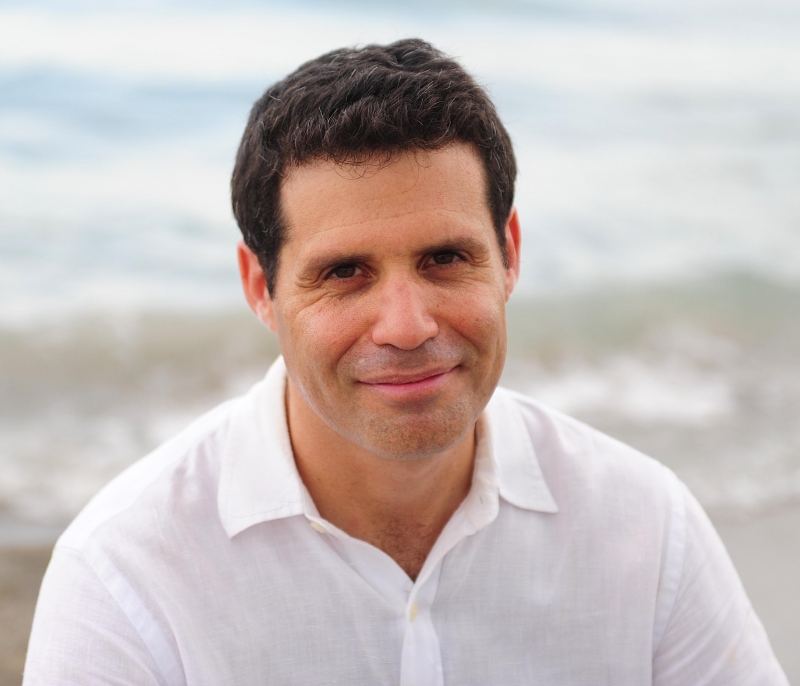Urging Peace-Seeking Muslim Leaders
Urging Peace-Seeking Muslim Leaders
 One of the first times I felt the pang of injustice was my first grade teacher yelling at the class: “Because of your poor behavior, there is no recess for any of you.” It was shocking on two levels. First was the violation of the unwritten understanding that recess is like Shabbat, and can never be taken away. Just as we work six days so we will be able to rest on the seventh, so we sit through long classes to earn the short rejuvenating time of recesses. The second was my inability to comprehend the nature of collective punishment. Why was I, who didn’t do anything wrong, included in the teacher’s reprimand and ended up staying in the classroom during recess?
One of the first times I felt the pang of injustice was my first grade teacher yelling at the class: “Because of your poor behavior, there is no recess for any of you.” It was shocking on two levels. First was the violation of the unwritten understanding that recess is like Shabbat, and can never be taken away. Just as we work six days so we will be able to rest on the seventh, so we sit through long classes to earn the short rejuvenating time of recesses. The second was my inability to comprehend the nature of collective punishment. Why was I, who didn’t do anything wrong, included in the teacher’s reprimand and ended up staying in the classroom during recess?
After the terrorist attacks in Paris I felt the same way. Many of the journalists and commentators, in an attempt to avoid singling out Islam, talked about how religion in general is often the cause for bloodshed. Others illustrated how all the holy books, the Christian Bible, the Torah and the Quran have numerous references to violence. Like in first grade I wanted to shout, why again do you include me among the evildoers? Is it really religion in general to blame, and do Judaism and Christianity bear the same guilt in the recent violence?
Karen Armstrong, one of the world’s leading experts on religion, recently published a book titled Fields of Blood: Religion and the History of Violence. In the book she shows how, in contrary to common belief, religion has not been the main reason for wars. Without getting into her brilliant argument, it is enough to note that the two World Wars were not fought for religion, but rather for secular nationalism. Stalin’s gulag was run by atheists, and the Armenian genocide was organized by atheistic secularists. On the other hand, Robert D. Putnam from Harvard University showed in his book, American Grace: How Religion Divides and Unites Us, how religious people are significantly more generous with their time and money than those who define themselves as secular. In other words, religion is far from being the source of all (not even most) evil.
Now, how about Islam? Is it inherently more violent than Judaism and Christianity? Having read the three holy books I can assure you that they all have their fair share of violence as well as the most ethical and compassionate teaching vis-à-vis the ways in which we should treat others and the obligation of establishing a just and decent society. It is also true that Jews and Christians did horrifying things in the name of their religions. Yigal Amir, an Orthodox law student, assassinated Yitzhak Rabin, Israel’s Prime Minister. Amir and some of his rabbis believed the assassination to be a mitzvah. But all these isolated incidents are dwarfed in comparison with the number of people who were killed by Jihadists terror attacks, in addition to countless Muslims being killed daily by other Muslims.
Am I not acting unjustly like my first grade teacher by blaming 1.6 billion Muslims for the actions of the radical groups? In middle school, when we complained about the unfairness of canceling a field trip because of some kids’ bad behavior the school principal came to our classroom and made us draw a big poster with the writing kol Israel arevin ze baze, all Israel is responsible for each other. When a Jew, wherever she/he lives, is in need we must help. But also, when a Jew messes up, we all take responsibility. I don’t know if this principle exists in Islam (I assume one can find it somewhere), but it is time for the peace-seeking Muslim leaders to act upon it.
Shalom,
Rabbi Alon Levkovitz
Sun, May 5 2024
27 Nisan 5784
Upcoming Events
-
Sunday ,
MayMay 5 , 2024JAMTY CAFE
Sunday, May 5th 9:00a to 9:30a
-
Sunday ,
MayMay 5 , 2024Yom Hashoah Breakfast
Sunday, May 5th 9:00a to 11:00a
-
Sunday ,
MayMay 5 , 2024Last Day of HaMakom Religious School
Sunday, May 5th 9:30a to 1:00p
-
Sunday ,
MayMay 5 , 2024Religious School Pre-K Class
Sunday, May 5th 9:30a to 12:00p
-
Sunday ,
MayMay 5 , 2024Cochavim and JAMTY Jr. Mini Golfing @ Lighthouse Cove
Sunday, May 5th 12:30p to 2:30p


